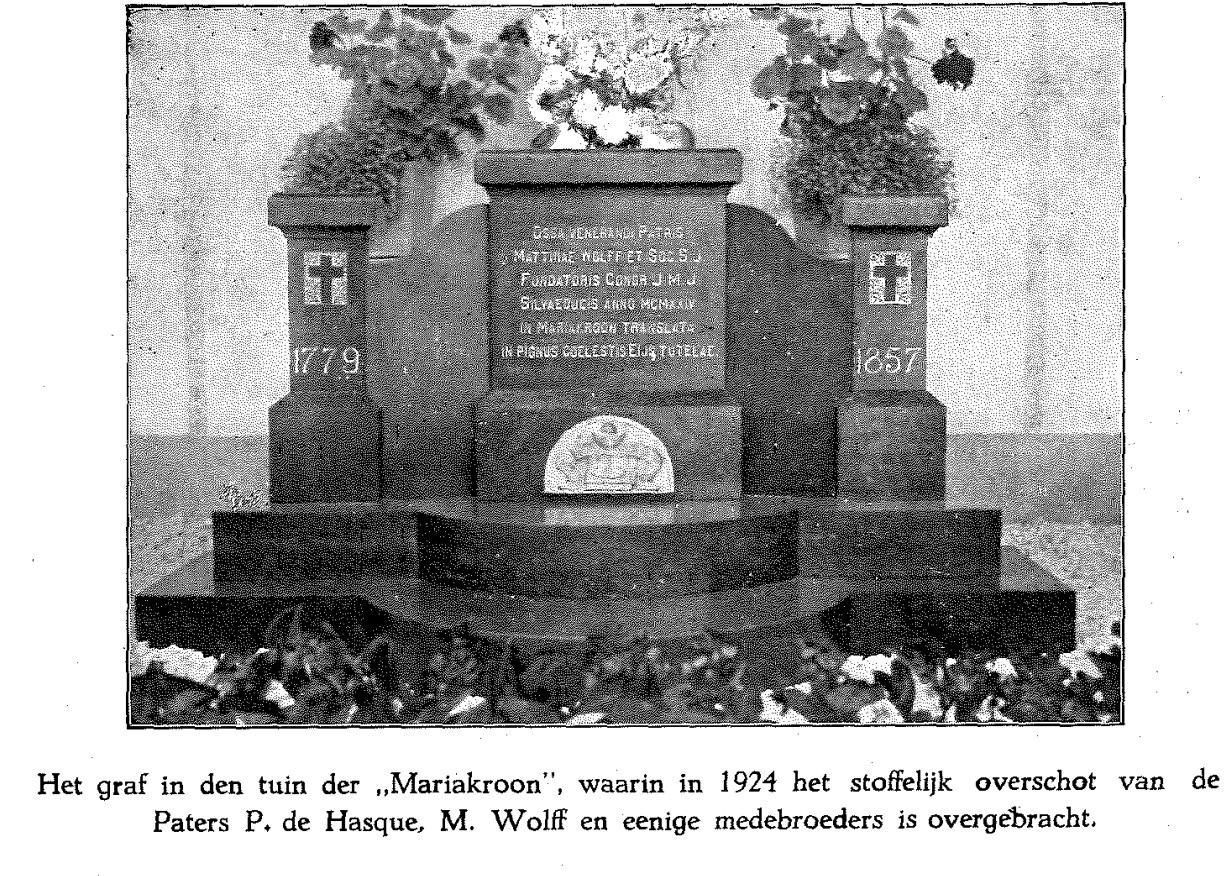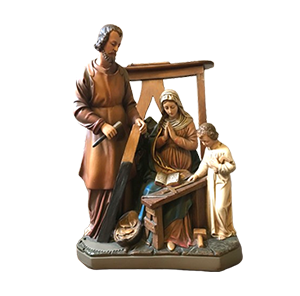Fr. Wolff’s Reflections on the Death and Judgement
09 Oct 2025 - 31 Oct 2025
“On 28th October 1857, he (Fr. Mathias Wolff) went to bed not to get up anymore. He died three days later at ten o’clock in the morning, just as he had lived, full of trust in God’s mercy, as he had wished. On a Saturday, the day on which his heavenly Mother is especially honoured.” (Ravening Wolff, 237). A little note was found on his chest after his death. He had written on it in Latin: “I was sick to the death, suddenly I was cured. I shall work until my death.” (Ravening Wolff, 234). Such was Fr. Wolff’s commitment to the mission of winning souls for Christ.
As we fondly venerate and devotedly keep the memory of our holy Founder, Fr. Wolff, every day, especially during October, it is appropriate for us to listen to Fr. Wolff’s instructions and reflections on death and judgment. These reflections help us live our lives on earth in a manner pleasing to God and prepare ourselves for the worthy celebration of our own heavenly birthday. Fr. Wolff died as he lived, a blessed death and a triumphant entry into the heavenly Kingdom.
He advises us to live every moment of our lives in consciousness of the certainty of death and the uncertainty of the hour of our death. (Lk 12: 13-21) And the rich man said to himself, “You have plenty of grain laid up for many years. Take life easy; eat, drink and be merry.” “But God said to him, ‘You fool! This very night, your life will be demanded from you. Then who will get what you have prepared for yourself?’ “This is how it will be with whoever stores up things for themselves but is not rich toward God.”
(Overwegingen – III, on the Judgement)
Consider yourself as standing before the righteous judge and introspect over so many sins against the ten commandments of God, against the five precepts of the Holy Church, so many faults committed through thoughts, through words, or also through the omission of various good works. So many graces that have been misused, so many divine inspirations neglected, so many reflections without fruit, so many prayers without attention, so many examinations of conscience done without improvement. Alas! Where is my soul heading?
(Overwegingen – II, on the Death)
Nothing is more certain than death; I must certainly die, but nothing is less certain than the hour at which I will have to die. I also do not know what kind of death will befall me: whether a sickness will take me, or a violent death will tear me from this world.
How different is the death of a righteous, diligent, and obedient sister from a sinful, lukewarm, and rebellious sister? The former, namely the good, are glad to see that the last hour approaches, to come to God and into eternal joy, just as a good labourer longs for the end of the day to receive his wages. The wicked, on the other hand, are filled with unrest and anxiety; for they see that the precious time is now over, forever; that they must appear before God’s righteous judgment to account for every moment of their lives, therefore they tremble. How is it with me? Could I, as I am now, die peacefully? Have I served God with diligence? Have I not wasted time? Have I always used God’s grace for my salvation?
I must now do what I wish to have done on my deathbed, for then, perhaps, struck by an accident, I shall no longer be able to speak, or fall into a sort of delirium, become unconscious, and be unable to do anything; therefore I will now try to deny my will perfectly, and obey in everything like a little child, I will subdue my evil affections, banish from my heart my sensuality and the love for the satisfaction of my body, chastise my body after Jesus’ example, and in all that I think, do, or speak, always think: what or how would I have thought, done, or spoken of this at the moment of my death? In other words, live every day as if it were my last day on earth.

(The photo of the grave in the garden of the 'Mariakroon', in which, in 1924, the mortal remains of Fathers P. de Hasque, M. Wolff, and some fellow brothers were transferred.)

